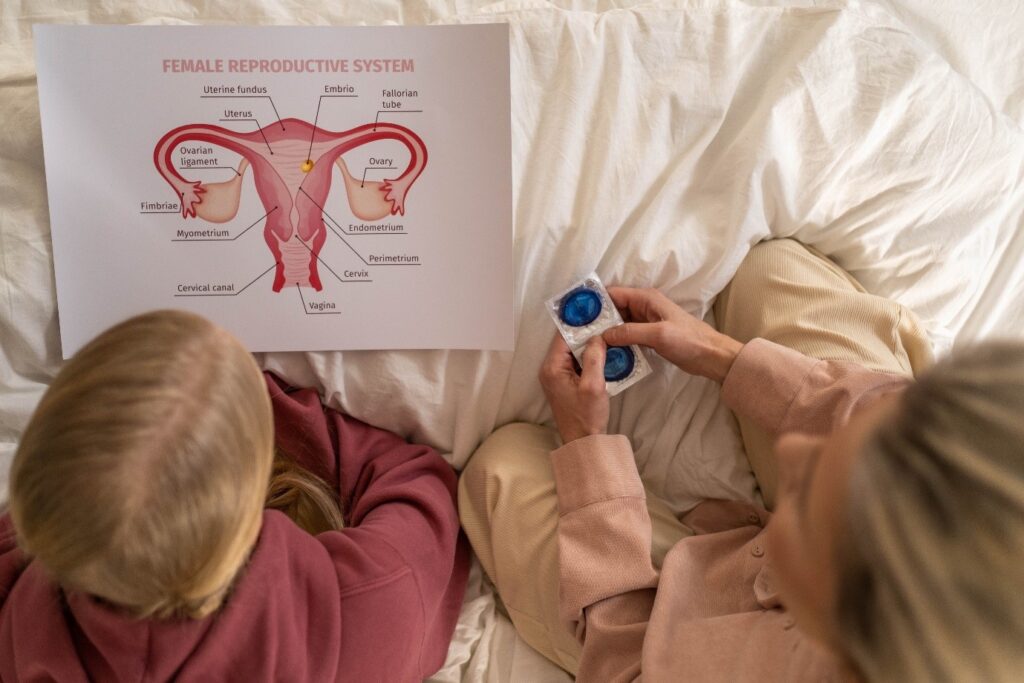The debate over how to approach sex education in schools has been ongoing for decades, with proponents of abstinence-only education and comprehensive sex education advocating for their respective approaches. This debate is not merely an ideological clash but has real-world implications for the health and well-being of young people.
Abstinence-only sex education, also known as abstinence-based education, is an approach that emphasizes abstaining from sexual activity until marriage as the sole method of preventing pregnancy and sexually transmitted infections (STIs). Proponents argue that this approach aligns with certain religious and moral values and encourages young people to make healthier choices by avoiding premarital sex.
Key arguments in favor of abstinence-only sex education include:
1. Moral and religious values: Advocates argue that teaching abstinence aligns with certain religious and moral values, promoting a sense of responsibility and self-control among students.
2. Reduced risk of STIs and teen pregnancy: Abstinence is the only 100% effective method of preventing STIs and unintended pregnancies, so proponents believe that teaching this message can protect young people from harm.
3. Delaying sexual debut: Supporters claim that abstinence education can delay the onset of sexual activity, reducing the chances of early and potentially regrettable sexual experiences.
Critics of abstinence-only education, however, raise several concerns:
1. Ineffectiveness: Multiple studies have shown that abstinence-only programs often fail to delay sexual activity or reduce STI rates significantly. Young people may engage in risky behaviors due to a lack of comprehensive information.
2. Unrealistic expectations: Critics argue that abstinence-only programs do not prepare students for the real world, where sexual activity is common. When they do become sexually active, they may lack knowledge about contraception and safe sex practices.
3. Stigmatization: Some claim that abstinence-only education can stigmatize students who do become sexually active, making them feel ashamed or guilty about their choices.

Comprehensive sex education, also known as comprehensive sexuality education, takes a more holistic approach to teaching young people about sex and relationships. It includes information about abstinence but also covers topics such as contraception, safe sex practices, healthy relationships, consent, and LGBTQ+ issues. Proponents argue that this approach provides students with the knowledge and skills they need to make informed decisions about their sexual health.
Key arguments in favor of comprehensive sex education include:
1. Real-world relevance: Comprehensive sex education acknowledges that some students will become sexually active, so it equips them with the information and tools they need to protect themselves and make responsible choices.
2. Reduced risk: By teaching about contraception and safe sex practices, comprehensive sex education aims to reduce the risk of unintended pregnancies and STIs among sexually active students.
3. Inclusivity: Advocates argue that comprehensive sex education is inclusive of all students, including LGBTQ+ individuals, and promotes acceptance and understanding.
Critics of comprehensive sex education raise concerns as well:
1. Moral and religious objections: Some individuals and groups argue that comprehensive sex education contradicts their moral or religious beliefs by promoting behaviors they consider sinful or immoral.
2. Age-appropriateness: Critics worry that comprehensive sex education may expose young children to explicit information before they are emotionally or developmentally ready to handle it.
3. Parental rights: Some argue that parents should have the primary responsibility for teaching their children about sex and relationships, and comprehensive sex education may infringe on this right.

The question of whether abstinence-only or comprehensive sex education is “better” depends on various factors, including individual beliefs, cultural context, and educational goals. There is no one-size-fits-all answer, as both approaches have their merits and drawbacks.
Abstinence-only education may be considered preferable by individuals or communities with strong moral or religious beliefs that emphasize abstaining from sexual activity until marriage. It may align with their values and principles.
On the other hand, comprehensive sex education is often seen as superior from a public health and educational perspective. It equips students with a broader range of information about sexual health, relationships, contraception, and safe sex practices. Comprehensive sex education aims to reduce the risk of unintended pregnancies and sexually transmitted infections among sexually active individuals.
The decision regarding which approach is superior should be made with careful consideration of the specific needs and values of a given community or educational institution, while also taking into account the available evidence on the effectiveness of each approach in promoting sexual health and responsible decision-making among young people.
Ultimately, the effectiveness of these approaches can vary depending on factors such as cultural norms, parental involvement, and the quality of the education provided. It’s important for policymakers, educators, and parents to engage in informed discussions and consider the best interests of young people when making decisions about sex education in schools. The ultimate goal should be to ensure that young people receive the information they need to make healthy and responsible choices about their sexual health and relationships.
Sources
- https://www.americanbar.org/groups/crsj/publications/human_rights_magazine_home/human_rights_vol38_2011/human_rights_spring2011/comprehensive_sex_education_vs_abstinence_only_until_marriage_programs/
- http://www.differencebetween.net/science/difference-between-abstinence-only-education-and-comprehensive-sex-education/
- https://healtheducationresources.unesco.org/library/documents/abstinence-only-vs-comprehensive-sex-education-what-are-arguments-what-evidence
- https://pubmed.ncbi.nlm.nih.gov/18346659/




